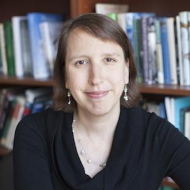When I first started at NCSE four years ago, our climate change program was fresh and new, only recently launched by my colleague Mark McCaffrey. The program was conceived on the basis of the thirty years of experience NCSE had working in the socially contentious area of evolution.
There were a lot of things that we thought we knew then about climate change education. From our discussions with teachers and our tracking of anti-science legislation, we concluded that the pushback against climate change had a lot of similarities to the pushback against evolution. If evolution’s great challenge was religion, climate change’s was politics. Teachers told us that they did not teach about the topic because it was too controversial or not in the standards; others told us that they weren’t sure about the science; still others told us that they were concerned about pushback. We accumulated anecdotes and stories regarding harassment of teachers who taught about climate change.
The question, though, kept occurring to us: if we are advocating for the power of science, of evidence, and of data, where was our data? As we all know, anecdotes make wonderful fodder for news stories, but where was the evidence that ideological interference with the teaching of climate change was a widespread problem?
So last year we (together with researchers from Pennsylvania State University) embarked on the first rigorous national survey of public school science teachers on climate change education. We wanted to know: Were they teaching it? How were they teaching it? Were they receiving overt pushback for teaching it?
What we found quite frankly shocked me—and in a good way. While we had assumed from our conversations that climate change was not covered by most science teachers, we were wrong: 96% of earth science teachers, 71% of middle school teachers, and 87% of biology teachers cover climate change in their class. Let me repeat that last figure: 87% of biology teachers.
Why am I so emphatic about the biology teachers? I am a biologist by training, so these folks are a little more dear to my heart. But more importantly, 97% of all high school graduates take biology. It is a science class that almost every person in America will take. If a topic is routine in high school biology, then it is going to be widely taught. So high-fives all around for this one. Moreover, the fact that biology teachers are even touching on climate change was surprising to me. Until recently, climate change has not been in very many state science standards and coverage in textbooks, as K. C. Busch explained, has been lackluster at best.
And these biology teachers weren’t just spending one 50 minute class on the topic—the average amount of class time devoted to climate change was four hours, about a week’s worth of classes. This may not seem like a lot, but considering how many other topics teachers need to squeeze in, I was ecstatic.
As you may have heard from the news coverage, though, not all the news from the survey was good news. About one in three teachers don’t cover climate change in a forthright manner, instead presenting a mixed message about whether humans are causing climate change. Less than half of the science teachers knew what the scientific consensus was regarding climate change. They often confused other environmental issues, such as ozone depletion, with topics that relate directly to climate change. But these are content issues for the most part and can be addressed through better resources, college training, and professional development. The hurdle of inclusion, one of our core concerns, has already been overcome, at least in part.
But what about that other big sticking point—overt pressure from the community to not teach about climate change? When we asked about such pressure, I was again shocked by the answers. Few teachers reported overt pressure not to teach about climate change—4.4 percent, as opposed to 22 percent reporting overt pressure not to teach about evolution in a similar survey. What was going on?
I suspect that the low figure is an artifact of how we asked the question. We asked specifically whether teachers were experiencing pressure, which is an overt action and can often involve harassment. That, it turns out, is thankfully rare. But in our follow-up informal surveys, we are asking more questions about how teachers perceive their communities’ feelings about climate change and whether this influences their ability to access professional development and teach about climate change in a forthright manner. That may be the sticking point: the fact that you aren’t being threatened personally doesn’t mean that you aren’t aware of the social stigma associated with teaching about climate change in your community.
Understanding—and helping to ameliorate—the perceived community pressures that deter teachers from presenting climate change honestly, accurately, and confidently is really the newest challenge for NCSE. As I prepare to leave NCSE to take a new position as the director of the San Francisco Bay Chapter of the Sierra Club, I am thrilled to have helped NCSE get to this point. We now have a better idea of the challenges teachers face in regards to climate change education and can align our programs accordingly. After four years, we are closer to really understanding the best way that we can help to improve climate change education. I’m glad that I was a part of it.

